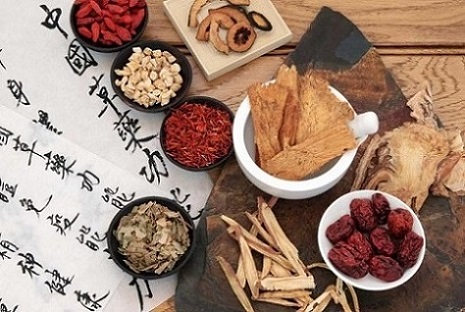Traditional Chinese medicine offers hope for ulcerative colitis sufferers by targeting microRNAs
Nikhil Prasad Fact checked by:Thailand Medical News Team Aug 10, 2024 1 year, 4 months, 3 weeks, 5 days, 14 hours, 44 minutes ago
TCM News: Ulcerative colitis (UC) is a chronic inflammatory bowel disease affecting the colon and rectum, characterized by recurrent symptoms that significantly impact the quality of life. The condition has been on the rise, particularly in China, presenting a substantial burden on patients and healthcare systems. The exact causes of UC remain elusive, making treatment challenging. Traditional Chinese Medicine (TCM) is gaining attention for its potential in managing UC, particularly by targeting microRNAs (miRNAs) to repair the damaged intestinal barrier. Researchers from The Affiliated Taian City Central Hospital of Qingdao University and Shandong University of Traditional Chinese Medicine have conducted a comprehensive study that is covered in this
TCM News report, that explores the role of miRNAs in UC and how TCM might offer new therapeutic avenues.
 Traditional Chinese medicine offers hope for ulcerative colitis sufferers by targeting microRNAs
The Role of MicroRNAs in Ulcerative Colitis
Traditional Chinese medicine offers hope for ulcerative colitis sufferers by targeting microRNAs
The Role of MicroRNAs in Ulcerative Colitis
MicroRNAs are small, non-coding RNAs that play a crucial role in regulating gene expression. They have been found to be involved in various biological processes, including cell proliferation, apoptosis, and differentiation. In the context of UC, miRNAs are significant because they regulate the intestinal mucosal immune system and epithelial barrier, both of which are critical in the disease's progression.
Research has shown that miRNAs are abnormally expressed in UC, either being upregulated or downregulated, which contributes to the disease's pathology. For example, miR-301a, miR-146a, and miR-155 are often upregulated in UC, leading to increased inflammation and intestinal barrier dysfunction. Conversely, miR-181 and miR-148a-3p are downregulated, which also contributes to the disease.
TCM's Potential
Traditional Chinese Medicine has long been used to treat various ailments, and recent studies have shown its potential in managing UC. TCM's holistic approach, which includes the use of botanical drugs and their metabolites, aims to restore balance in the body, which is particularly relevant in the context of UC. By targeting miRNAs, TCM can potentially reduce inflammation, repair the intestinal mucosal barrier, and restore immune balance.
Key Study Findings:
TCM and miRNAs in UC Treatment
One of the most significant findings from the research is that TCM can modulate the expression of specific miRNAs involved in UC. For example, Shenlingbaizhu San (SLBZS), a well-known TCM formula, has been shown to improve intestinal permeability by downregulating miR-130a and upregulating PPARγ and occludin, proteins crucial for maintaining the integrity of the intestinal barrier. Another formula, Kaixuan Decoction (KXT), has been found to reduce intestinal permeability and inflammation by modulating miR-155 and miR-195, which are involved in the body's immune response.
TCM Formulas and Their Mechanisms<
/strong>
-Shenlingbaizhu San (SLBZS): Composed of 12 botanical drugs, including Panax ginseng and Poria cocos, SLBZS was found to inhibit weight loss, improve disease activity, and downregulate miR-130a in a mouse model of UC. This regulation led to the increased production of occludin, a protein that plays a critical role in maintaining the intestinal barrier.
-Kaixuan Decoction (KXT): A formula created by Professor Yue Rensong, KXT, was shown to reduce the levels of D-LA, BT, and DAO in peripheral blood, which are markers of intestinal permeability. The formula also downregulated miR-155, a key regulator of immune response, and upregulated miR-195, which plays a role in maintaining intestinal integrity.
-Fufangkushen Decoction (FFKSD): This formula was found to improve the body weight and colon length of model mice, reduce disease activity, and modulate the expression of miR-146a, which is involved in the differentiation of goblet cells that secrete mucus in the intestine.
The Therapeutic Potential of Botanical Metabolites
Beyond the formulas, specific botanical metabolites have shown promise in treating UC by targeting miRNAs. For instance, baicalin, a flavonoid extracted from Scutellaria baicalensis, was found to downregulate miR-191a, thereby improving the integrity of the intestinal barrier. Similarly, berberine (BBR), a metabolite found in several TCM herbs, was shown to upregulate miR-103a-3p, which in turn inhibited the Wnt/β-catenin pathway, a critical pathway involved in inflammation and barrier function.
Conclusion: A New Frontier in UC Treatment
The study conducted by the Chinese Traditional Chinese Medicine (TCM) researchers provides compelling evidence that TCM can play a vital role in managing UC by targeting miRNAs. The ability of TCM to modulate miRNA expression presents a novel therapeutic approach that could potentially lead to more effective treatments for UC, particularly in patients who do not respond well to conventional therapies.
The findings suggest that further research is needed to fully understand the mechanisms through which TCM affects miRNA expression and how these changes translate to clinical outcomes. As more is understood about the molecular networks regulated by miRNAs, TCM could become an essential component of UC treatment, offering hope to millions of patients worldwide.
The study findings were published in the peer-reviewed journal: Frontiers in Pharmacology.
https://www.frontiersin.org/journals/pharmacology/articles/10.3389/fphar.2024.1446554/full
For the latest TCM News, keep on logging to Thailand Medical News.
Read Also:
https://www.thailandmedical.news/news/traditional-chinese-medicine-formula-shows-promise-for-treating-inflammatory-bowel-disease
https://www.thailandmedical.news/news/traditional-chinese-medicine-shows-promise-for-treating-insomnia
